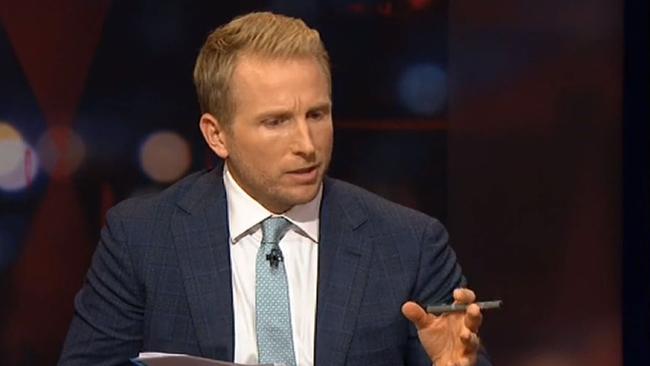ABC Q&A panel debate ‘big ideas’ to lift Australia out of economic debt and social isolation
A small Q and A audience was seated to ask the panel about Australia’s recovery from coronavirus.

As Australia looks to an economic and social recovery from the coronavirus pandemic, panellists on the ABC’s Q&A program on Monday night debated the “courageous leadership” and “big ideas” needed to forge a path forward.
Members of the public were seated inside the studio to pitch their ideas for the first time since March 17.
In what ways could Australia reimagine it’s future? #QandA pic.twitter.com/hvtzwshQgp
— QandA (@QandA) May 25, 2020
Former lord mayor of Sydney Lucy Turnbull said community ties became stronger in Australia as a result of the COVID-19 pandemic.
“This experience of the bushfires and the COVID pandemic has actually taught us to relocalise,” Ms Turnbull said.
Chief Scientist Alan Finkel’s “big idea” to help Australia emerge from the COVID-19 pandemic was to export renewable energy.
“We have an opportunity that's been talked about for a long time and it will be realised in the next few years to export renewable energy from Australia to the continents around the world,” Dr Finkel said.
Can Australia reinvent itself as a technology giant? #QandA pic.twitter.com/9H99rpSUCU
— QandA (@QandA) May 25, 2020
Host Hamish Macdonald challenged the panel to consider how new technology could be developed when funding is being pulled from universities and JobKeeper is not being provided to university staff.
Science and technology editor at NITV Rae Johnston said Australia needed to invest in research and development.
“We have brilliant minds in this country that are well supported by the equally brilliant people within the education system,” Johnston said.
“But if they're not supported every step of the way, we're just going to fail,” she said.
Anthropologist and artificial intelligence specialist Genevieve Bell said her background in Silicon Valley reinforced the importance of investing in ideas that could turn economies around.
“I was lucky enough to spend the last 20 years in Silicon Valley and the company I worked for believed that you needed to have ideas when the economy turned and you could do something interesting,” Professor Bell said.
How can digital innovation change the lives of people with disabilities? #QandA pic.twitter.com/oVl5MHlSdp
— QandA (@QandA) May 25, 2020
Broadcaster and engineer Jordan Nguyen said “thought technologies” – where physiological signals can be used to control technology – should be used to support people with disabilities to become more independent.
“These things are possible. It's bringing together a combination of biomedical technologies, artificial intelligence, somethings robotic technology as well,” Dr Nguyen said.
How can female founders in Australian tech start-ups be encouraged and supported? #QandA pic.twitter.com/qWnHniGgQG
— QandA (@QandA) May 25, 2020
The place of female leadership in driving Australia’s technology agenda was also debated.
Professor Bell said she believed companies in the US and Australia were genuinely committed to combating the male-dominated workforce.
“You have to ask that the men in the system may grow,” she said.
“One of the interesting lessons I learnt in my time in the US was that as teams get more diverse, you have to actually think about how you handle conflict. More people from more different places, more opinions.”
Dr Finkel agreed.
“And we've already heard about the important role of mentorship. But also leadership,” he said.
Why is the COVID Commission pushing for a gas-led recovery? #QandA pic.twitter.com/pnsZLHuOBE
— QandA (@QandA) May 25, 2020
A gas-led manufacturing recovery from COVID-19 has been promoted by the National COVID Co-ordination Commission.
Dr Finkel said a gas-led recovery form COVID-19 should be considered as “the perfect compliment to solar and wind” energies.
“It's not about in my opinion about building the gas industry for the sake of the gas industry, it's gas as an enabler,” he said.
But Mrs Turnbull disagreed and said the “battery technology revolution” has arrived.
“I think if we over-invest in gas and we think about it for the next 10, 20, 30 years that’s about the same as building a power station with a somewhat lower emissions profile.”
If the Government’s childcare package isn’t funding 100% of family day care educators, services and operators, how can they continue to operate? #QandA pic.twitter.com/zqbikfp7gS
— QandA (@QandA) May 25, 2020
The next question asked panellist and women's advocate Georgie Dent to explain why early childhood education should be free and how it was critical to women’s participation in the workforce.
“We need to radically re-imagine early childhood education and fundamentally we need to extend it into part of our education system,” Ms Dent said.
Would a four day work week help people to feel more connected to their communities and families? #QandA pic.twitter.com/eemPatOSrk
— QandA (@QandA) May 25, 2020
Ms Dent said the idea of a four-day working week has been found to boost productivity, engagement and women’s participation in the workforce.
Do we need to reimagine the structure and infrastructure of Australian cities? Should more emphasis be placed on growing regional towns? #QandA pic.twitter.com/1HCajf38v3
— QandA (@QandA) May 25, 2020
Mrs Turnbull acknowledged that remote work arrangements were not always possible, but said it was being considered in companies around the world as a result of the pandemic.
“When you think about it it's a huge transformation in capturing the genius and the talents of people right around the country.”




To join the conversation, please log in. Don't have an account? Register
Join the conversation, you are commenting as Logout